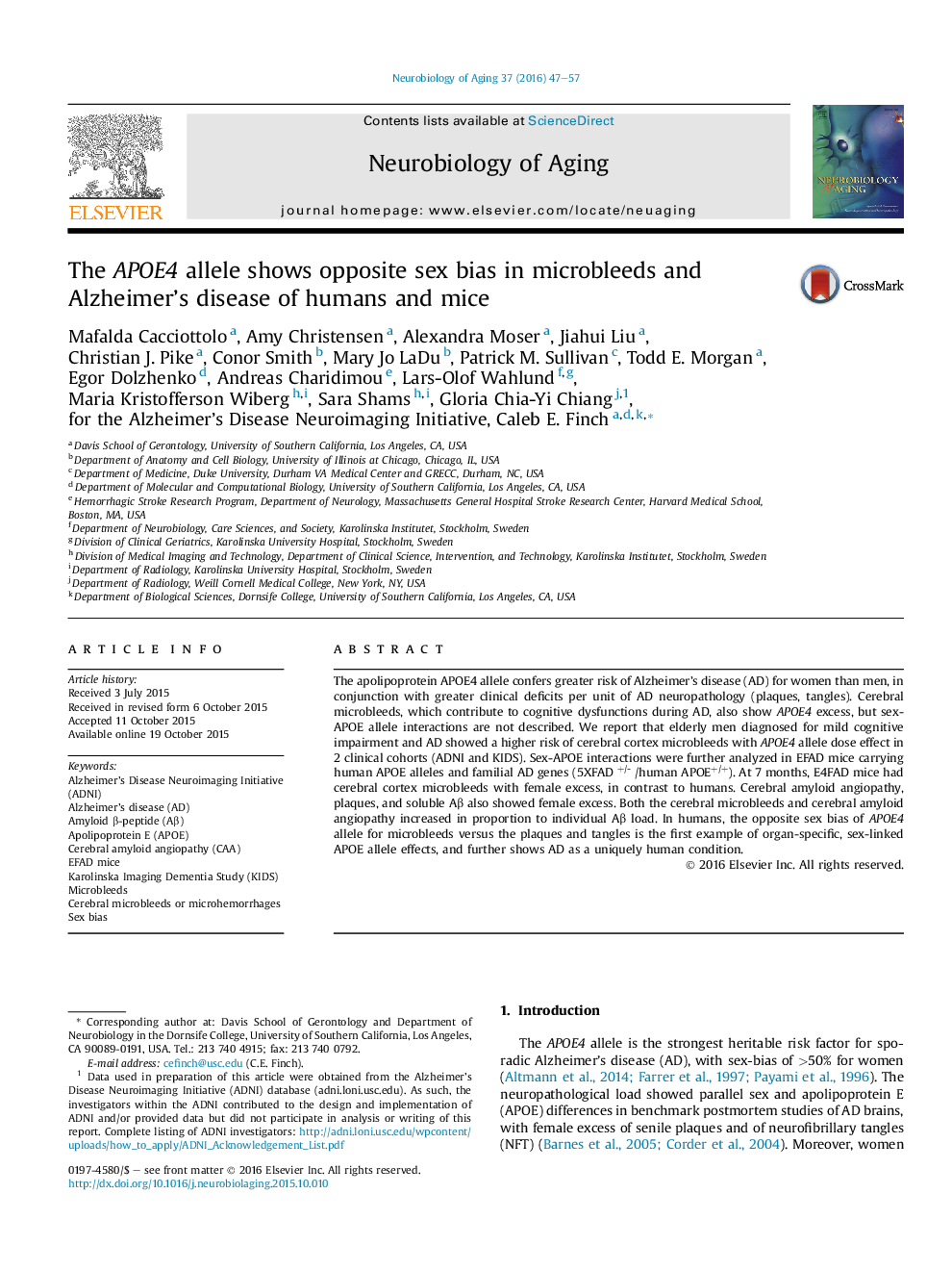| کد مقاله | کد نشریه | سال انتشار | مقاله انگلیسی | نسخه تمام متن |
|---|---|---|---|---|
| 6803685 | 1433548 | 2016 | 11 صفحه PDF | دانلود رایگان |
عنوان انگلیسی مقاله ISI
The APOE4 allele shows opposite sex bias in microbleeds and Alzheimer's disease of humans and mice
دانلود مقاله + سفارش ترجمه
دانلود مقاله ISI انگلیسی
رایگان برای ایرانیان
کلمات کلیدی
موضوعات مرتبط
علوم زیستی و بیوفناوری
بیوشیمی، ژنتیک و زیست شناسی مولکولی
سالمندی
پیش نمایش صفحه اول مقاله

چکیده انگلیسی
The apolipoprotein APOE4 allele confers greater risk of Alzheimer's disease (AD) for women than men, in conjunction with greater clinical deficits per unit of AD neuropathology (plaques, tangles). Cerebral microbleeds, which contribute to cognitive dysfunctions during AD, also show APOE4 excess, but sex-APOE allele interactions are not described. We report that elderly men diagnosed for mild cognitive impairment and AD showed a higher risk of cerebral cortex microbleeds with APOE4 allele dose effect in 2 clinical cohorts (ADNI and KIDS). Sex-APOE interactions were further analyzed in EFAD mice carrying human APOE alleles and familial AD genes (5XFAD +/- /human APOE+/+). At 7 months, E4FAD mice had cerebral cortex microbleeds with female excess, in contrast to humans. Cerebral amyloid angiopathy, plaques, and soluble Aβ also showed female excess. Both the cerebral microbleeds and cerebral amyloid angiopathy increased in proportion to individual Aβ load. In humans, the opposite sex bias of APOE4 allele for microbleeds versus the plaques and tangles is the first example of organ-specific, sex-linked APOE allele effects, and further shows AD as a uniquely human condition.
ناشر
Database: Elsevier - ScienceDirect (ساینس دایرکت)
Journal: Neurobiology of Aging - Volume 37, January 2016, Pages 47-57
Journal: Neurobiology of Aging - Volume 37, January 2016, Pages 47-57
نویسندگان
Mafalda Cacciottolo, Amy Christensen, Alexandra Moser, Jiahui Liu, Christian J. Pike, Conor Smith, Mary Jo LaDu, Patrick M. Sullivan, Todd E. Morgan, Egor Dolzhenko, Andreas Charidimou, Lars-Olof Wahlund, Maria Kristofferson Wiberg, Sara Shams,